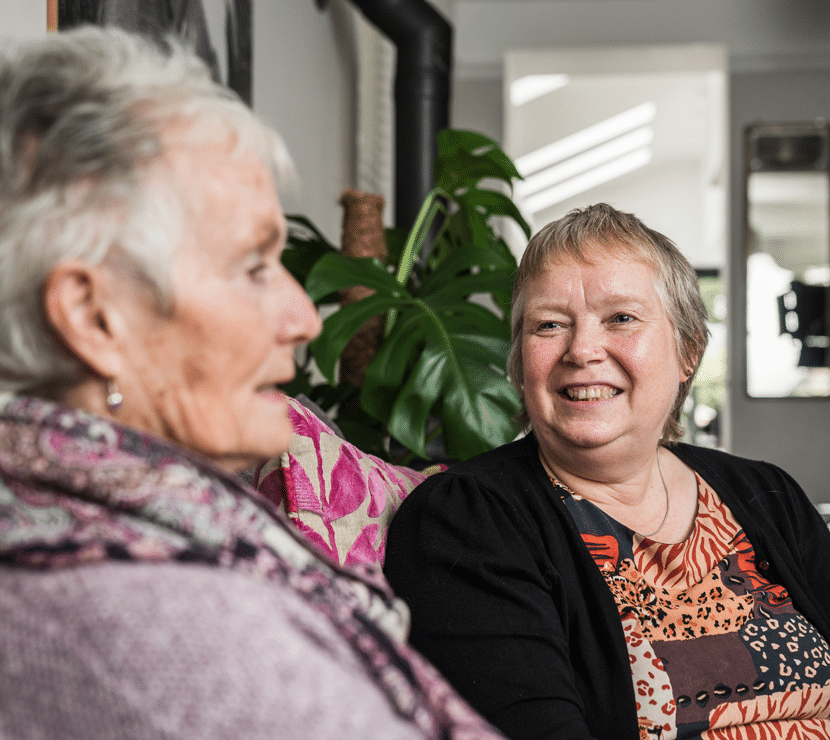An advocate is someone who can provide valuable assistance in navigating the complex landscape of health and social care. By listening to your concerns and providing information, advocates empower people to make informed decisions and ensure their interests are best represented.
Here we explore what it means to be an advocate and how they can help you or someone you care for.
What is advocacy?
Advocacy is a free service provided to people who require extra support in navigating the complex world of health and social care. Advocates are independent, meaning they do not work for the council, the NHS or care providers. Instead, their role is to provide people with the support they need to make informed decisions about their health, care and wellbeing.
Advocates work on behalf of people to ensure that all the necessary rules and regulations are being followed when it comes to that person’s care. They can support individuals to have their say and understand their rights, ensuring that their interests are always protected.
For instance, if someone requires a care needs assessment or a financial assessment, advocates can help with this process. They can also assist with organising personal budgets, managing direct payments, making complaints or lodging appeals.
One of the key benefits of advocacy is confidentiality. Anything discussed with an advocate is treated in the strictest confidence, so people can be assured that their personal information will be kept safe.
Advocates are a valuable part of the health and social care sector and they work tirelessly to ensure that people are receiving the best possible care and support.
What does an advocate do?
An advocate plays a critical role in supporting individuals to make informed decisions about their own care. Here are some of the key things that an advocate can do:
- Organising and attending your care needs assessment
- Making and reviewing your care and support plan
- Helping you arrange your personal budget
- Appealing a decision
- Making a safeguarding enquiry or arranging a Safeguarding Adults Review
- Provide guidance on finding and accessing appropriate care services, including live-in care or other care options
- Helping you to understand your rights and entitlements under the law
- Assisting with communication and negotiation between you and your healthcare providers or social care services
- Supporting you to make complaints or raise concerns about the care you receive
- Helping you to access relevant information and resources
What can’t an advocate do?
While an advocate can provide valuable support and assistance, there are also some things that they cannot do. Here are some examples:
- An advocate cannot make decisions for you. They are there to provide you with information and support to help you make your own decisions.
- An advocate cannot offer legal advice or representation. They can provide you with information about your rights, but they are not qualified to provide legal advice or act as a lawyer.
- An advocate cannot provide counselling or befriending services. While they can provide emotional support, they are not trained to offer counselling or other therapeutic interventions.
- An advocate cannot disclose confidential information without your permission, except in certain circumstances where there are concerns about your safety or the safety of others.
- An advocate cannot force healthcare providers or social care services to provide specific care or treatment, but they can support you in negotiating with these services to try and achieve your desired outcomes.
When might you need an advocate?
There are many situations where an advocate can provide valuable support and assistance to help you navigate the health and social care system and ensure your voice is heard.
You might need an advocate if;
- You find it difficult to understand information about your care and support options.
- You are having trouble making decisions about your care.
- You feel that your voice is not being heard or that your rights are being ignored.
- You are unhappy with the care or treatment that you are receiving.
- You are having trouble accessing the care and support that you need.
- You have a physical disability, mental health condition, or age-related condition such as dementia that affects your ability to make decisions.
Different types of advocacy
Advocacy services range from local organisations offering support to national charities providing specialised assistance. Here are some of the different types of advocacy services:
- Self-advocacy – groups that help individuals speak up for themselves and feel confident doing so.
- Citizen advocacy – unpaid advocates who voluntarily represent and support someone else based on trust and discretion.
- Statutory advocacy – advocacy that is directly related to government policies and laws, such as the Mental Capacity Act 2005 and the Mental Health Act 2007.
- Independent mental health advocacy – support for those who have been given a Community Treatment Order or detained under certain sections of the Mental Health Act 1983.
- Care and support advocacy – support for finding care through the local council, including attending assessments, appealing decisions, making care plans and finding the right care option.
- Issue-based advocacy – support for complaining about the NHS, including knowledge of the complaints process, useful resources and direction to the Health Service Ombudsman if necessary.
How do I find advocates in health and social care?
There are many resources available to help you find the right advocate for your needs. Here are some tips on finding advocacy services:
- Mind has various resources for finding relevant independent advocacy services. Mind Infoline can provide contact details of local advocacy groups and advocacy organisations.
- Local Mind may also be able to help you or your loved one learn about their rights.
- Use Rethink Mental Illness to find an online directory of advocacy services across the UK.
- Advocacy organisations like VoiceAbility and POhWER offer advocacy services in numerous areas across England.
- In Wales, Advocacy Support Cymru provides mental health advocacy services.
- In Scotland, the Scottish Independent Advocacy Alliance offers help with finding an advocate. Disability Information Scotland can also help you find local advocacy services.
- For older adults, OPAAL is a national organisation supporting independent advocacy services.
Requesting an advocate from your local authority
If you need support during a health or social care assessment, you have the right to request an advocate from your local authority. This is especially important if you have difficulty understanding and retaining information or if you feel uncomfortable speaking up for yourself.
To request an advocate, you can contact your local authority and explain why you need someone to support you. If you have a social worker, they should ensure that an advocate is provided for you before your assessment. If you don’t have a social worker, you can still ask for an advocate. Be sure to keep a copy of your request for your own records.
When making your request, it’s important to be specific about your needs. For example, you can explain that you find it hard to remember and understand information and that you always take someone with you to doctor’s appointments.
You can then request an advocate to support you during the assessment process. With an advocate by your side, you can feel more confident and empowered in communicating your needs and preferences.
Why you should consider the support of an advocate
If you or a loved one are struggling to navigate the healthcare or social care system, consider seeking out the support of an advocate. There are many advocacy organisations and services available across the UK and resources like Mind Infoline and Rethink Mental Illness can help connect you with relevant resources in your local area.
Oxford Aunts has provided care services throughout Oxfordshire and its surrounding counties for over 50 years. If you or a loved one need support with daily tasks or personal care at home, contact us today to learn more about our compassionate home care services.
Talk to us about your live-in care needs
Call our friendly and approachable team today to see how we can help you and your family.





